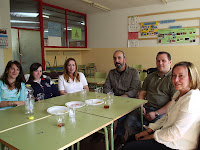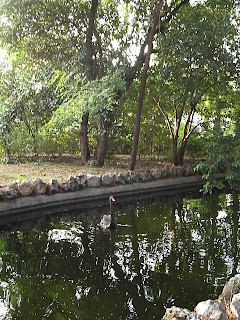As I told you in class, we won't have time to correct these exercises in class (sorry!).
Here are the answers. Make sure you check them and if you have any questions, don't hesitate to ask next week.
Unit 9 - Review and Practice (page 94)1. 1. can tell 2. couldn't take 3. Can/ could you help 4. could stand 5. won't be able to play 6. couldn't sleep 7. won' be able to finish
2. 1 Can she read music? 2. Could you see the sea? 3. How much can he afford? 4. When will he be able to walk again? 5 . What can he/it do? 6. When will he be able to start? 7. How many languages could she speak?
3. 1. This letter was posted last Friday 2. The animals were given some food. Some food was given to the animals 3. They were invited to Raul and Sharon's wedding 4. All the flights were cancelled because of the weather 5. This chair was made in Italy in the sixteenth century 6. We were warned to stay indoors until the morning 7. A lot of money and jewellery were stolen from their house.
4.1. More than fifty people were arrested. 2. The store was opened at exactly 9 am. 3. I was paid a lot of money to do the job. 4. We were not met at the airport 5. Everybody was rescued from the ship 6. All the classrooms were cleaned yesterday
5. 1 interviewee 2. qualifications 3. OK. 4. OK. 5. receptionist
6. 1. apply 2. jury 3. employee 4. complaint 5. favour 6. company 7. appointment.
Unit 10 - Review and Practice (page 104)1. 1. (-), 2 (-), 3 (-), 4 a, 5 (-), 6 (-), 7 an
2. 1. a, a. the; 2. a; 3 the; 4 (-); 5 the; 6 (-); 7 the
3. 1. much, 2 a lot, 3 piece, 4 some, 5 little, 6 many, 7 a lot of
4. 1 a few, 2 of, 3 many, 4 a , 5 piece
5. 1 on, 2 to, 3 with 4 on, 5 for, 6 about, 7 to, 8 to.
6. 1 depends, 2 up, 3 rat, 4 after, 5 cat, 6 up, 7 fish, 8 mouse, 9 up, 10 grew up.
Unit 11 - Review and Check (page 114)3.1. I told him all my secrets
2 Juan owes me a lot of money
3. Can I offer you some tea?
4 He promised me a pay rise this month.
5. My grandmother always gives me really good advice.
6. I sent some flowers to the nurse who looked after me.
7. Could you bring us the bill please?
6. 1 shake, 2 get, 3 had, 4 rented, 5 waved, 6 going.


























